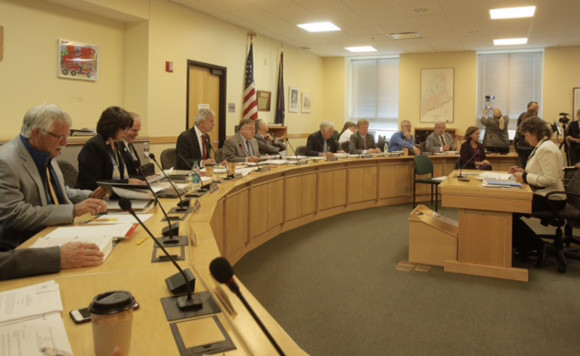After listening to the Office of Program Evaluation and Government Accountability deliver its report on the effectiveness of the state’s Pine Tree Development Zone program to lawmakers, it’s clear that OPEGA should go back to the drawing board and the Legislature ought to consider the economic benefits the state has reaped because of the program. The Maine State Chamber of Commerce is convinced that lawmakers don’t yet have the data necessary to make an informed decision as to whether or not the Pine Tree Zone program is actually working for Maine.
Here’s the problem with this report, and here’s what I hope legislators will keep in mind in January:
OPEGA concluded after reviewing the Pine Tree Zone program that the program’s design does not support its intended goals. Then OPEGA concluded that the program’s results are unclear, because the agency did not collect data to determine its effectiveness.
Let’s be honest: OPEGA took the easy way out. They admitted the data were actually there — maybe not readily available, but there nonetheless. They indicated they simply did not have the time to gather it.
If the Legislature is going to direct OPEGA to pursue a review of programs like these, then the appropriate time needs to be allocated to gather the critical data necessary to arrive at a verifiable conclusion. Instead, we have a report that comes to conclusions without adequate data to support those conclusions. That kind of outcome is dangerous for Maine businesses and our state’s future economic growth.
The goal of the Pine Tree Zone program is to provide new qualifying employment opportunities in certain industries in economically distressed areas. It’s true that when enacted, the program was designed to target low-income, economically depressed areas of the state. However, in 2009 the Legislature expanded the Pine Tree Zone program, designating the entire state as Tier 1, because the state — along with much of the country and the world — was in a deep recession and there was a desperate need to attract investment and jobs and to retain jobs here in Maine.
At the time, lawmakers from around Maine wanted the program to apply to their areas, and for good reason. Who wouldn’t want to enable businesses to stay afloat and remain in Maine, especially during one of the most economically depressed times since the Great Depression?
By expanding the program statewide, lawmakers did what they thought best in an effort to jumpstart investment. They ought to be applauded for that. In 2010, certain areas were removed from Tier 1 and were designated as a Tier 2 based on unemployment levels in those areas, but still the vast area of the state remained eligible. At the end of 2013, Tier 2 locations were further limited based on unemployment rates.
So, if the goal of the program has changed, then it should be so noted within the statute. But don’t assume just because goals are now shifting that the program hasn’t worked. Economic development is more than creating jobs; it’s also about keeping the jobs that have actually stayed here in Maine because of the Pine Tree Zone program.
This isn’t the first evaluation of the Pine Tree Zone program. Investment Consulting Associates, a third-party consultant, conducted evaluations in 2014 and 2016. Their next evaluation is in 2018. They did a thorough review of the program, complete with gathering data, interviewing companies, etc. These are basic research steps OPEGA did not accomplish.
Investment Consulting Associates’ findings were much different from OPEGA’s report. The consultant concluded that for every $1 the state of Maine spent on the program, it received $2.32 back. That’s a 122 percent increase. The direct benefit to the state of Maine with the program was $3.3 billion versus $1.4 billion without it. The report also concluded that the Pine Tree Zone program has “been shown to effectively improve the competitive economic development environment for the state of Maine with a positive return on investment.” It can’t get much clearer than that.
As OPEGA continues its review of our meager investment programs, we are concerned about OPEGA’s completeness and their accuracy. OPEGA loses all credibility when it doesn’t use data or talk to the stakeholders and businesses that actively use these programs to remain competitive in a global economy. Our incentive programs are all that Maine has to attract the necessary capital investment to sustain our economy and they pale beside those of other states. We need capital investment to be competitive in this global economy.
Linda Caprara is senior governmental relations specialist with the Maine State Chamber of Commerce.
Copy the Story LinkSend questions/comments to the editors.



Success. Please wait for the page to reload. If the page does not reload within 5 seconds, please refresh the page.
Enter your email and password to access comments.
Hi, to comment on stories you must . This profile is in addition to your subscription and website login.
Already have a commenting profile? .
Invalid username/password.
Please check your email to confirm and complete your registration.
Only subscribers are eligible to post comments. Please subscribe or login first for digital access. Here’s why.
Use the form below to reset your password. When you've submitted your account email, we will send an email with a reset code.